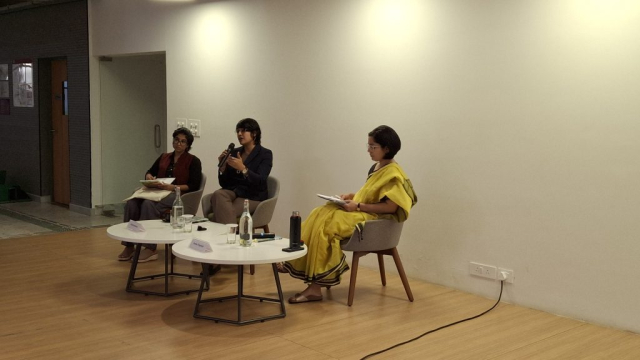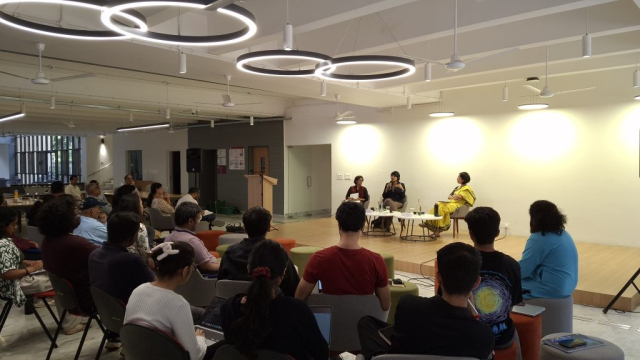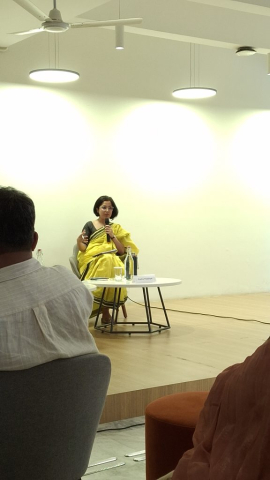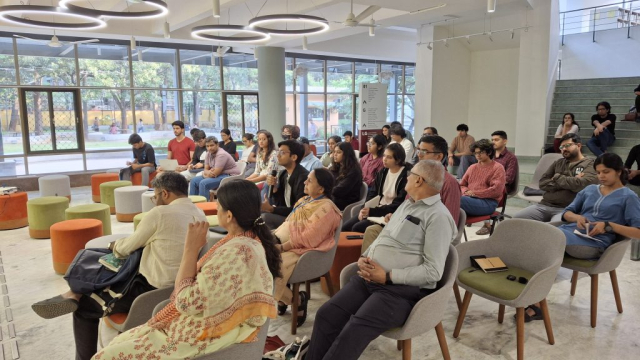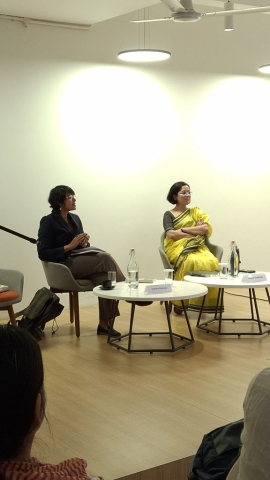Book Talks@NLS Library | ‘Governing Forests: State, Law and Citizenship in India’s Forests’
Basement, NLSIU Library
Registration is mandatory for the public. To register, click here.
Tuesday, January 7, 2025, 4:00 pm
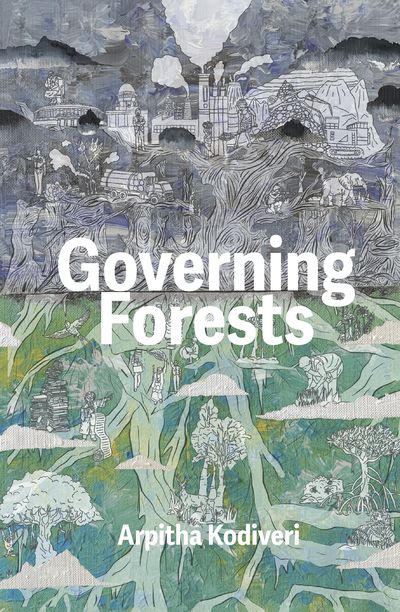 The NLSIU Library Committee is organising a book talk at the NLS Library by Arpitha Kodiveri on her book ‘Governing Forests: State, Law and Citizenship in India’s Forests.’ The talk will take place from 4 pm to 5:30 pm on January 7, 2025.
The NLSIU Library Committee is organising a book talk at the NLS Library by Arpitha Kodiveri on her book ‘Governing Forests: State, Law and Citizenship in India’s Forests.’ The talk will take place from 4 pm to 5:30 pm on January 7, 2025.
Dr. Sneha Thapliyal, Associate Professor of Economics, NLSIU, will be the discussant.
This event is open to the public and registration for members outside of the NLSIU community is mandatory to attend the event. To register, click here.
About the Book
The nations of the Global North are responding to the climate change emergency with emissions trading schemes and alternative sources of energy. Meanwhile, nations of the Global South, still emerging from historical exploitation under colonialism, face decisions about natural resource use that are, for traditional owners and inhabitants of resource-rich lands, often a matter of life or death. Environmental lawyer and legal scholar Arpitha Kodiveri has worked alongside many of India’s forest-dwelling communities and describes how they bear the cost of both rapacious mining development and increasing pressure for forest land to be set aside for environmental conservation. Despite these challenges, Kodiveri shows how the traditional owners and inhabitants of forest areas are driving creative solutions in forest law. Hope can be found here, in each community’s unique vision of co-governance, expressed in the language of care and repair.
(Source: Melbourne University Press)
To read an excerpt of this book, click here.
About the Author
Arpitha Kodiveri is an environmental law and justice scholar and assistant professor of political science at Vassar College. Her work focuses on the role of climate litigation in redressing claims of loss and damage due to climate change. She has previously worked as an environmental lawyer supporting Adivasi and forest-dwelling communities in India.
(Source: Melbourne University Press)


